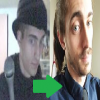OK, since I always like to try to balance NEGATIVITY with POSITIVITY, here's my advise regards WHAT YOU CAN TAKE for effectively and safely treating BENZODIAZEPINE WITHDRAWAL:
1) THEANINEFirstly, hat's off to joelski28 for suggesting THEANINE!

THEANINE is highly useful in this instance, since it DOES NOT function as a GABA RECEPTOR AGONIST but UPREGULATES THE PRODUCTION OF GABA within the brain, functions as a GLUTAMATE RECEPTOR ANTAGONIST, and enhances ALPHA-WAVE production within the brain.
See the following studies:
J Herb Pharmacother 2006;6(2):21-30.
The neuropharmacology of L-theanine(N-ethyl-L-glutamine): a possible neuroprotective and cognitive enhancing agent.Nathan PJ, Lu K, Gray M, Oliver C.
SourceBehavioural Neuroscience Laboratory, Department of Physiology, Monash Center for Brain and Behaviour, Monash University, Australia. Nathan@med.monash.edu.au
AbstractL-theanine (N-ethyl-L-glutamine) or theanine is a major amino acid uniquely found in green tea. L-theanine has been historically reported as a relaxing agent, prompting scientific research on its pharmacology. Animal neurochemistry studies suggest that
L-theanine increases brain serotonin, dopamine, GABA levels and has micromolar affinities for AMPA, Kainate and NMDA receptors. In addition has been shown to exert neuroprotective effects in animal models possibly through its antagonistic effects on group 1 metabotrophic glutamate receptors. Behavioural studies in animals suggest improvement in learning and memory. Overall, L-theanine displays a neuropharmacology suggestive of a possible neuroprotective and cognitive enhancing agent and warrants further investigation in animals and humans.
PMID: 17182482
--------------------------------------------------------------------------------------------------------------------------
AANA J. 2009 Dec;77(6):445-9.
Anxiolytic effects of L-theanine--a component of green tea--when combined with midazolam, in the male Sprague-Dawley rat.Heese T,
Jenkinson J,
Love C,
Milam R,
Perkins L,
Adams C,
McCall S,
Ceremuga TE.
SourceUS Army Graduate Program in Anesthesia Nursing, Carl R. Darnell Army Medical Center, Fort Hood, Texas, USA.
AbstractThe purpose of the study was to investigate the anxiolytic effects of L-theanine and its potential interaction with the GABAA receptor in Sprague-Dawley rats. L-theanine is a major component of green tea, which has traditionally been used as an herbal remedy in the treatment of many medical conditions, including anxiety. Herbals and supplements and their potential interactions perioperatively are a concern to anesthetists. Fifty-five rats were divided into 5 groups: control (saline); L-theanine (positive control); flumazenil (a known benzodiazepine receptor antagonist) and L-theanine; and midazolam and L-theanine. The behavioral component of anxiety was evaluated using the elevated plus-maze and calculated by the time spent in the open arm of the maze divided by total time in the maze. Data were analyzed using a 2-tailed multivariate analysis of variance and Sheffé posthoc test
. The data suggest that L-theanine does not produce anxiolysis by modulation of the GABAA receptor; however, in combination with midazolam, a synergistic or additive effect was demonstrated by decreased anxiety and both fine and basic motor movements. These data may provide direction for further studies examining L-theanine and its effects on anxiety and motor activity.
PMID: 20108732
---------------------------------------------------------------------------------------------------------------------------------------------
Clin Neuropharmacol. 2007 Jan-Feb;30(1):25-38.
The deployment of intersensory selective attention: a high-density electrical mapping study of the effects of theanine. Gomez-Ramirez M, Higgins BA, Rycroft JA, Owen GN, Mahoney J, Shpaner M, Foxe JJ.
SourceProgram in Cognitive Neuroscience, Department of Psychology, The City College of the City University of New York, New York, NY, USA.
Abstract OBJECTIVE: :
Ingestion of the nonproteinic amino acid theanine (5-N-ethylglutamine) has been shown to increase oscillatory brain activity in the so-called alpha band (8-14 Hz) during resting electroencephalographic recordings in humans. Independently, alpha band activity has been shown to be a key component in selective attentional processes. Here, we set out to assess whether theanine would cause modulation of anticipatory alpha activity during selective attentional deployments to stimuli in different sensory modalities, a paradigm in which robust alpha attention effects have previously been established.
METHODS: : Electrophysiological data from 168 scalp electrode channels were recorded while participants performed a standard intersensory attentional cuing task.
RESULTS: : As in previous studies, significantly greater alpha band activity was measured over parieto-occipital scalp for attentional deployments to the auditory modality than to the visual modality. Theanine ingestion resulted in a substantial overall decrease in background alpha levels relative to placebo while subjects were actively performing this demanding attention task. Despite this decrease in background alpha activity, attention-related alpha effects were significantly greater for the theanine condition.
CONCLUSION: :
This increase of attention-related anticipatory alpha over the right parieto-occipital scalp suggests that theanine may have a specific effect on the brain's attention circuitry. We conclude that theanine has clear psychoactive properties, and that it represents a potentially interesting, naturally occurring compound for further study, as it relates to the brain's attentional system.
PMID: 17272967
2) BACOPA MONNIERIBacopa seems to have some GABA agonist properties:
Anticonvulsant activity of Bacopa monniera in rodents
Darpan KaushikI, *; Ashish TripathiII; Rashmi TripathiII; Madiwalayya GanachariIII; Suroor Ahmad KhanI
IF/O Pharmacy, Jamia Hamdard University
IICollege of Pharmacy, Jakhrota, Agra
IIIDepartment of Pharmacology, KLE's College of Pharmacy
ABSTRACT
Bacopa monnieri (L), belonging to the Scrophulariaceae family and commonly known as Brahmi, is well known in India for its CNS activity but its neuropharmacological effect has not yet been explored. In the present study, the antiepileptic effects of the plant were investigated. The ethanolic extract of Bacopa monniera was tested for anticonvulsant activity in albino rats, using different convulsive models. The ethanolic extract of leaves produced significant anticonvulsant activity for all the different models studied. The present study shows a probable mechanism of action similar to that of benzodiazepines (GABA agonist). Thus, these results emphasize the need to diversify by using alternative therapeutic approaches pertaining to herbal medicine, where a single easily available plant may provide solutions to several therapeutic challenges, as observed in the anticonvulsant action of ethanolic extract of B. monniera.
Uniterms: Bacopa monniera/pharmacognosy. Anticonvulsant. MES test. PTZ model. Hypoxia model. Strychnine
Please kindly note that this study does
NOT in fact demonstrate BACOPA to be a GABA AGONIST, since the study did not in any regard evaluate the actual interactions with the GABA RECEPTORS; it merely INFERS
THE POSSIBLITY of a GAGAergic mechanism from the facts that:
- BACOPA was shown to potentiate the effects of DIAZEPAM; and
- BACOPA was shown to possess ANTI-CONVULSANT properties.
Please kindly note the following extracted from the FULL TEXT for the particular study:
“BM can lower the dose of diazepam that is required for protection against seizures. This may indicate a GABAergic mechanism as the effect of diazepam was potentiated…”“The present study shows that the alcoholic extract of Bacopa monniera may function in a similar manner to BZD, given its benzodiazepine-like [anti-convulsant] action, ALTHOUGH THE SPECIFIC RECEPTOR INTERACTIONS WERE NOT EVALUATED. Further evaluation of Bacopa monniera is needed to establish its exact mechanism of action.”---------------------------------------------------------------------------------------------------------------------------------------------------------------------------------------------------------------------
BACOPA MONNIERI in fact might prove very helpful, since this has been shown in animal studies to upregulate down-regulated GABA receptors:
Epilepsy Behav. 2010 Apr;17(4):441-7. Epub 2010 Feb 11.
Behavioral deficit and decreased GABA receptor functional regulation in the cerebellum of epileptic rats: effect of Bacopa monnieri and bacoside A.Mathew J,
Peeyush Kumar T,
Khan RS,
Paulose CS.
SourceDepartment of Biotechnology, Molecular Neurobiology and Cell Biology Unit, Centre for Neuroscience, Cochin University of Science and Technology, Kerala, India.
AbstractIn the present study, the effects of Bacopa monnieri and its active component, bacoside A, on motor deficit and alterations of GABA receptor functional regulation in the cerebellum of epileptic rats were investigated. Scatchard analysis of [(3)H]GABA and [(3)H]bicuculline in the cerebellum of epileptic rats revealed a significant decrease in B(max) compared with control. Real-time polymerase chain reaction amplification of
GABA(A) receptor subunits-GABA(Aalpha1), GABA(Aalpha5,) and GABA(Adelta)-was downregulated (P<0.001) in the cerebellum of epileptic rats compared with control rats. Epileptic rats exhibit deficits in radial arm and Y-maze performance.
Treatment with B. monnieri and bacoside A reversed these changes to near-control levels. Our results suggest that changes in GABAergic activity, motor learning, and memory deficit are induced by the occurrence of repetitive seizures.
Treatment with B. monnieri and bacoside A prevents the occurrence of seizures thereby reducing the impairment of GABAergic activity, motor learning, and memory deficit.
PMID: 20153260
------------------------------------------------------------------------------------------------------------------------------------------------------------------------------------------------------------------------
And specifically to reverse the effects of Diazepam on the benzodiazepine pathway:
Psychopharmacology (Berl) 2008 Sep;200(1):27-37. Epub 2008 Jan 13.
Bacopa monniera exerts antiamnesic effect on diazepam-induced anterograde amnesia in mice.Prabhakar S, Saraf MK, Pandhi P, Anand A.
SourceDepartment of Neurology, Post Graduate Institute of Medical Education and Research, Sector-12, Chandigarh, 160012, India.
Abstract RATIONALE: As Benzodiazepines are known to produce amnesia by involvement of the GABAergic system, we examined Bacopa monniera, an herb known for memory enhancement for reversal of memory deficits caused by diazepam.
OBJECTIVES: The objective of the study was to study the effect of standardized extract of B. monniera on diazepam-induced amnesia in mice using Morris water maze.
MATERIALS AND METHODS: We used the rota rod test as a screening measure for muscle incoordination followed by the Morris water maze scale to evaluate the effect of B. monniera on amnesia. The index of acquisition and retrieval was recorded with varying doses of Bacopa.
RESULTS: The results revealed antiamnesic effects of B. monniera (120 mg kg(-1) oral) on diazepam (1.75 mg kg(-1) intraperitoneal)-induced amnesia.
The degree of reversal by Bacopa was significant as it progressively reduced escape latency time when mice treated with diazepam were subjected to acquisition trials.
CONCLUSIONS: The antiamnesic effects of Bacopa suggest likely a gamma-aminobutyric acid-benzodiazepine pathway possibly affecting long-term potentiation.PMID: 18193203
3) MAGNESIUM MAGNESIUM might prove to be a very useful adjunct due to its NMDA RECEPTOR ANTAGONISM mechanism of action.
See the attached medical publication for details.I recommend the MALATE form, and total dosage of up to 6.25 grams MAGNESIUM MALATE powder (= 1,000mg Mg) daily in divided doses.
4) TAPERING-DOWN OF GABA RECEPTOR AGONISTSI feel the need to repeat here the following information:The mechanism of action of BENZODIAZEPINES is that of GABA RECEPTOR AGONISM
Hence, you want to
AVOID ALL GABA RECEPTOR AGONISTS if going through BENZO WITHDRAWAL
The only exception to this is if you are following a TAPERING-DOWN PROTOCOL to wean yourself off of the Benzos (WHICH IS STRONGLY ADVISED), in which case you should switch to using a Benzo with a short half-life and use that for the tapering-down processUsage of herbal extracts for which the full extent of the interaction with the GABA receptors is unknown is NOT advised for use in the tapering-down process.
ONCE YOU HAVE WEANED YOURSELF DOWN AND HAVE STOPPED TAKING THE BENZOS YOU SHOULD AVOID ALL GABA RECEPTOR AGONISTS. PERIOD.
Edited by ScienceGuy, 29 January 2012 - 03:29 PM.


























































